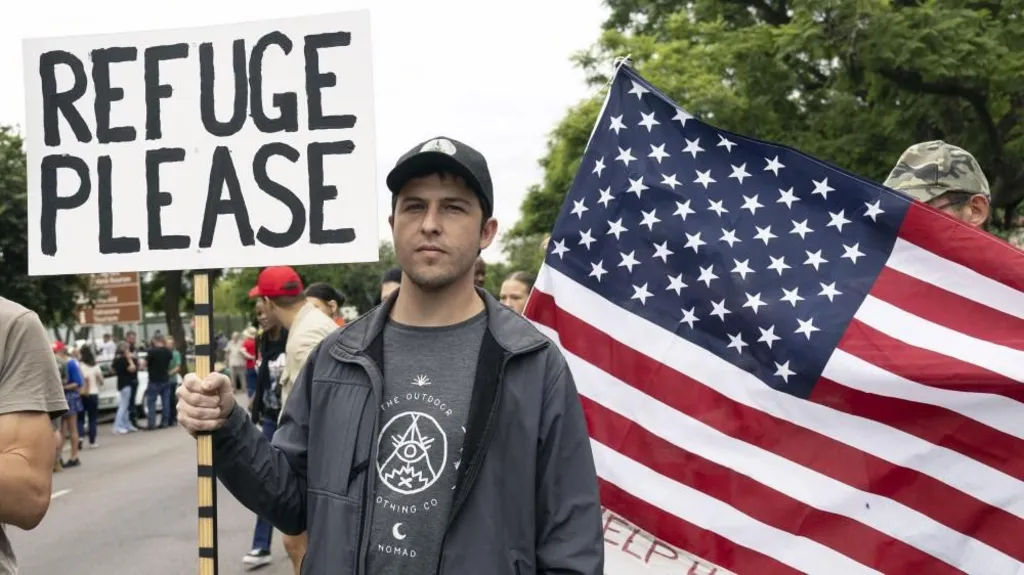US Plans to Accept White Afrikaners as Refugees Spark Controversy
South Africa has strongly criticized the United States’ reported plans to accept white Afrikaners as refugees, a move that has stirred diplomatic tensions and raised questions about the political motivations behind the resettlement initiative. The controversy centers on an executive order signed by former US President Donald Trump in February 2025, which accuses the South African government of racial discrimination and land expropriation targeting Afrikaners, and offers them a pathway to asylum in the US.
South Africa Denies Claims of Racial Persecution
The South African government has rejected the US claims as unfounded and politically motivated. In a statement released by the Department of International Relations and Cooperation, South Africa emphasized that the internationally recognized definition of refugees under the 1951 Refugee Convention requires a “well-founded fear of persecution,” a criterion the government argues does not apply domestically. Police statistics cited by Pretoria show no evidence of systematic violence against any racial group, including white farmers, and the government maintains that constitutional protections and judicial mechanisms adequately address discrimination concerns.
Diplomatic Engagements Seek Clarification and Assurance
South Africa’s Deputy Minister of International Relations and Cooperation, Alvin Botes, held discussions with US Deputy Secretary of State Christopher Landau to express these concerns and seek clarifications. Pretoria has requested assurances that individuals selected for resettlement have undergone thorough vetting and do not face unresolved criminal charges. While South Africa affirms its citizens’ constitutional right to freedom of movement and will not obstruct those who choose to leave, it questions the legal basis and humanitarian justification for the US’s refugee classification of Afrikaners.
US Executive Order Links Land Reform to Alleged Persecution
The US executive order, which also includes a cut in financial aid to South Africa, accuses Pretoria of enacting policies such as the Land Expropriation Act without compensation, which the US claims disproportionately target minority Afrikaner farmers. The order further alleges that South Africa’s government undermines US foreign policy interests and supports “bad actors” on the world stage. These assertions have been consistently refuted by South African officials, who describe the US initiative as an interference in their sovereign affairs and a misrepresentation of the country’s land reform and social justice policies.
Afrikaners Show Interest Amid Uncertainty Over Resettlement Process
The announcement of the US asylum offer has generated significant interest among Afrikaners, some of whom have visited US embassies and consulates to inquire about the resettlement process. However, confusion remains regarding the eligibility criteria and implementation timeline, as US authorities have provided mixed messages. The US State Department has indicated it is prioritizing humanitarian relief for Afrikaners who are “victims of unjust racial discrimination,” but details about the scope and commencement of the resettlement program remain unclear.

Experts Warn of Challenges Facing Resettled Afrikaners
Experts have cautioned Afrikaners against hastily accepting the offer, warning that life in the US may present challenges, including potential hostility towards immigrants and difficulties integrating into a new society. Immigration specialists note that the executive order lacks clarity on the legal status and protections afforded to those resettled, and that the realities of refugee life in the US may differ significantly from expectations.
Migration Trends Reflect Complex Socioeconomic Factors
The broader context includes nearly 70,000 South Africans currently seeking asylum in the US for various reasons, reflecting complex migration patterns driven by economic, social, and political factors. South Africa’s government continues to assert that its land reform policies are aimed at redressing historical injustices and are implemented within the framework of the constitution, rejecting allegations that they constitute racial persecution or justify refugee status for any group.
Diplomatic Rift Highlights Broader Tensions Over Land and Race
In summary, the US plan to resettle white Afrikaners as refugees has sparked diplomatic friction, with South Africa condemning the initiative as politically motivated and inconsistent with international refugee law. The situation highlights ongoing tensions over land reform, racial dynamics, and foreign relations between the two countries, while raising important questions about the criteria and consequences of refugee resettlement policies in a global context.

